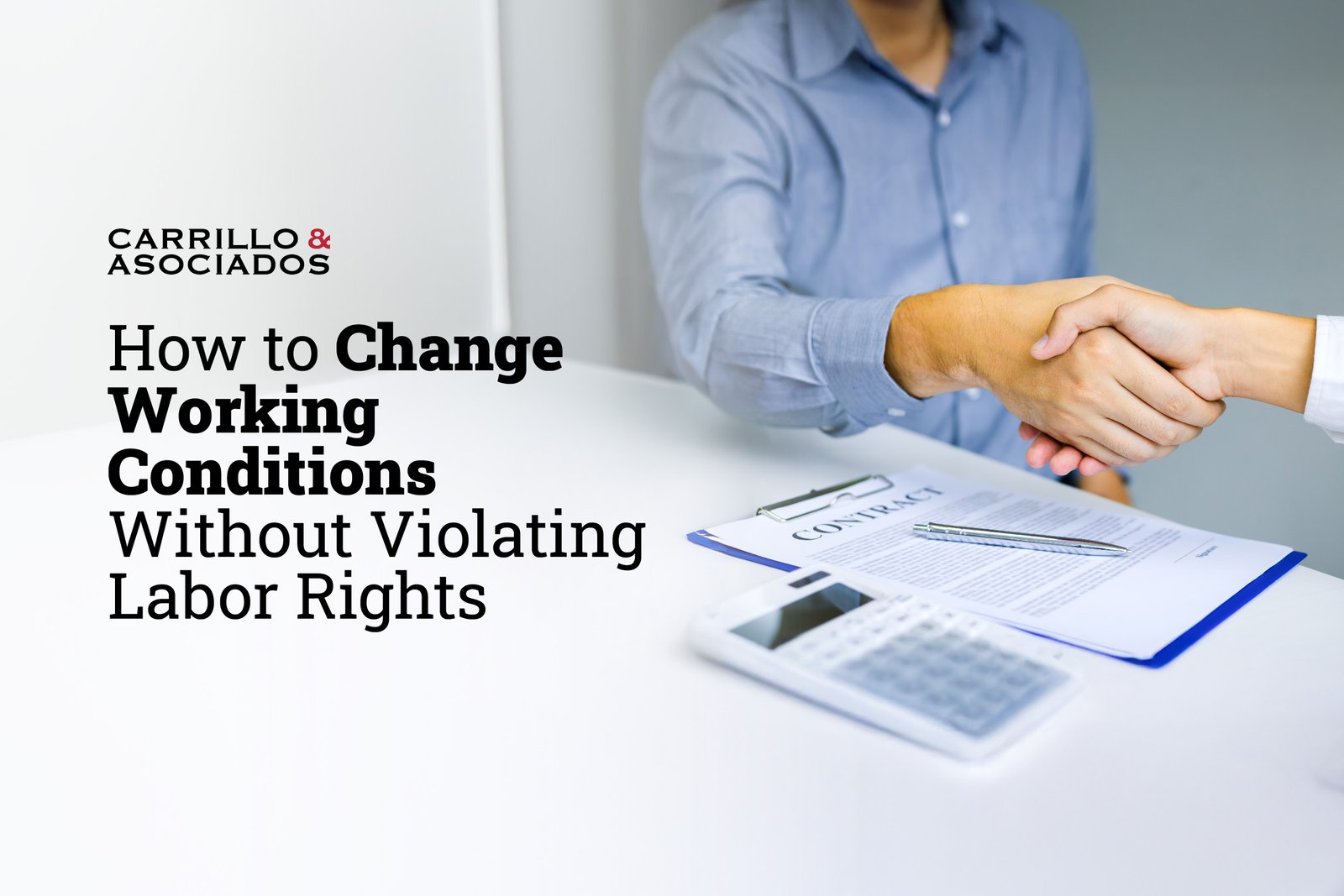
An employee who has been working for the same organization for a decade gets called into his boss's office. His leader says that the company is going through difficult times and that, starting next month, his salary will be reduced by 10%. In addition, he informs him that, to take advantage of his experience and leadership, the employee will be transferred to another office in the north of the country, more than 400 kilometers from his home, to promote business development in that region.
This hypothetical situation, where an employer makes a unilateral decision that represents a substantial and adverse change for the employee's interests would likely end in a labor dispute.
This does not mean that an employer cannot make decisions to adapt to technological developments, new labor trends, or unexpected business situations. However, before making decisions, it is important to ponder how much can be done without violating the rights of employees.
What the Law Says
In general, all employers must be aware that making changes to workers' conditions without proper management can result in administrative sanctions, costly lawsuits, and even lead to the organization acquiring a bad reputation within the industry.
Guatemalan law specifies that the working conditions governing a contract or employment relationship cannot be fundamentally or permanently altered. This prohibition should be understood only in employment relationships that have conditions superior to the minimum protection that the law grants to workers[1].
On this last point, it is important to note that conditions that involve the waiver, reduction, misrepresentation, or limitation of rights recognized in the Constitution or other provisions relating to work are null and void and are not binding on workers[2], even if stated in a contract or other internal document. This means that, for example, even if a worker signs a document agreeing to work 56 hours per week, this is not valid, as the Labor Code stipulates that the maximum working week is 44 hours.
Now, what are the essential working conditions according to the law?
- The subject matter or object: the type of work for which the worker was hired.
- The form or manner of performance: the tools, methods, and procedures specific to the position.
- The time of performance: the duration of the working day.
- The place of performance: the physical headquarters or location where the work must be carried out.
- The wage that the employer is obliged to pay: the salary and non-waivable benefits.
It is important to note the concept of ius variandi, which is the power of the employer to vary the terms or conditions of the provision of services by the worker, regardless of whether they are in the public or private sector. However, considering the rulings of the Constitutional Court (CC), this power has its limits and is not applicable when "the worker is deprived of the benefits he or she had acquired or when the employment situation is modified to the detriment of the subordinate's interests."
Right to an Indirect Dismissal
When an employer makes unilateral decisions, they must consider that one of the consequences could be that the employee interprets the measure as constructive dismissal. In other words, they may feel that their acquired rights have been violated and therefore consider themselves dismissed and claim compensation in court. Transferring an employee hundreds of kilometers from their place of residence and usual place of work could be taken as constructive dismissal, and the employee could claim compensation in court[3]. To do so, they would have to act in accordance with the law as follows:
- After learning of the change in working conditions, they must consider themselves indirectly dismissed within the following 20 working days[4].
- Notify the employer of the constructive dismissal.
- Immediately and effectively cease work.
- Claim payment of their severance pay and non-waivable benefits within 30 business days, as well as damages for wages not received from the date of dismissal until the payment of your severance pay for a maximum of 12 months and legal costs[5].
Beyond the legislation, and based on the Firm's experience, when a situation of indirect dismissal arises, employers tend to react. A common argument is to claim that the changes that took place were not substantial and did not seriously affect the employee. Another more aggressive strategy is to argue that the employee abandoned their duties and therefore would not be entitled to compensation.
Taking all the above into account, our general recommendation for all employers is that if they intend to fundamentally or permanently alter the working conditions described in an employee's contract, they should negotiate and set this out in a new contract or in a letter where both parties sign their agreement to the new conditions.
Ultimately, knowing the extent to which you can unilaterally modify the working conditions of your team is key to maintaining operational efficiency without exposing yourself to legal conflicts.
If you have any questions, please do not hesitate to contact us.


[1] Article 20 of the Labor Code, Decree 1441 of the Congress of the Republic.
[2] Article 106 of the Constitution and Article 12 of the Labor Code.
[3] Based on Article 79, paragraph j) and Article 80 of the Labor Code.
[4] Article 261. Workers' rights to effectively terminate their employment contract with just cause expire within twenty working days from the moment the employer gave cause for separation or constructive dismissal.
[5] Article 260 of the Labor Code.